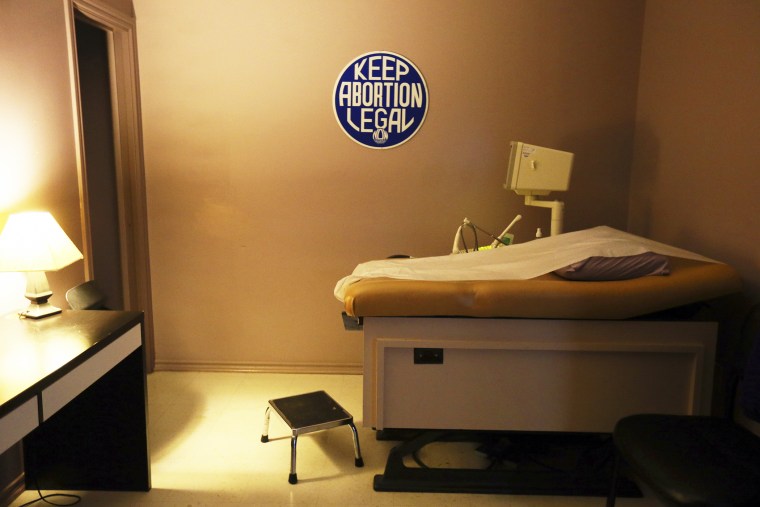For nearly a half-century, conservative gubernatorial candidates weren't in a position to credibly promise voters they'd ban abortions in their states. These candidates weren't completely powerless -- they could endorse plenty of restrictions that affect women's reproductive health -- but there's been a common understanding that Roe v. Wade is the law of the land.
But just this week, the political landscape started changing. Politico reported last night on a Republican gubernatorial debate in Florida.
Republican gubernatorial candidates Adam Putnam and Ron DeSantis both pledged at their first debate to sign legislation to ban abortions "after a fetal heartbeat is detected."Such a law would be viewed as a direct challenge to the federal landmark abortion-rights case Roe v. Wade.
Both of the leading GOP candidates in Florida endorsed legislation that would ban abortions after about six weeks into a pregnancy -- before some women would even know for sure that they're pregnant.
Under current law, such a measure would be unconstitutional. A year from now, however, the legal landscape will likely look very different: Supreme Court Justice Anthony Kennedy, who resisted efforts to overturn Roe, is retiring, and Donald Trump has already vowed to replace him with a far-right opponent of reproductive rights.
The Republican president has said that as far as he's concerned, overturning Roe will "happen automatically."
If that happens -- or, depending on your perspective, when that happens -- abortion won't be illegal everywhere. Rather, the issue will be decided on a state-by-state basis, which is what made the exchanges from last night's debate in Florida so notable.
If Trump's plan comes to fruition, and states can start banning abortions, every gubernatorial candidate in the nation will need to make clear whether he or she will allow reproductive rights to exist in his or her state, and voters will understand that the answers will have a real-world impact.
Former Rep. Gwen Graham (D-Fla.), a prominent Democratic candidate for governor in Florida, said yesterday, in response to the GOP candidates' debate, "I didn't think this election could be any more important, but with the retirement of Justice Anthony Kennedy, Florida voters may be deciding whether or not women will have the right to make their own health care decisions in our state.... [The leading Republican candidates] confirmed our deepest fears: if one of these men is the next governor of Florida, abortion could be illegal in our state within the next year."
For the first time since the early 1970s, this issue will be up front and center in every gubernatorial race in the United States -- not only this year, but every year, because the public will soon realize that the candidates' answers will really matter.
